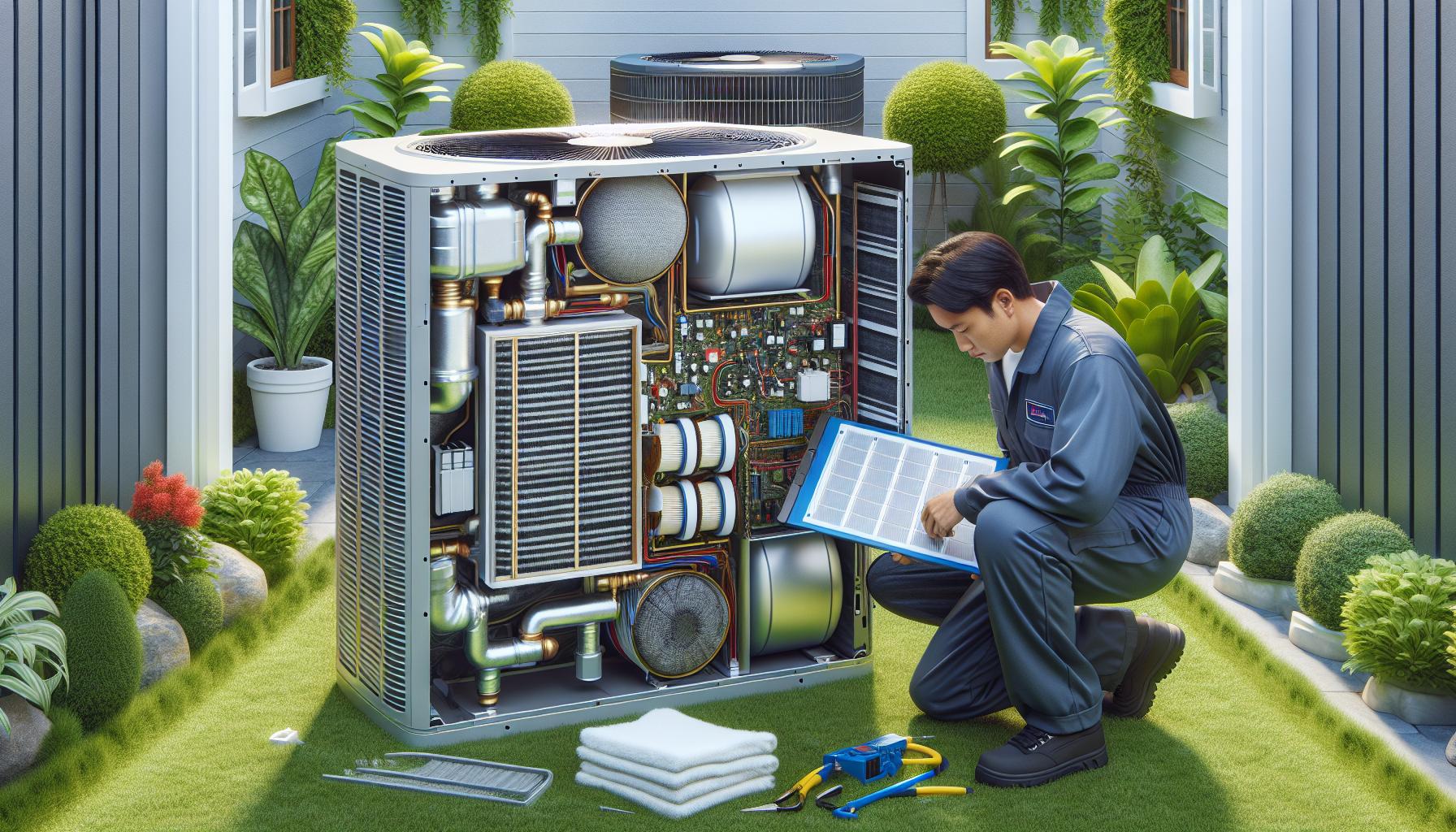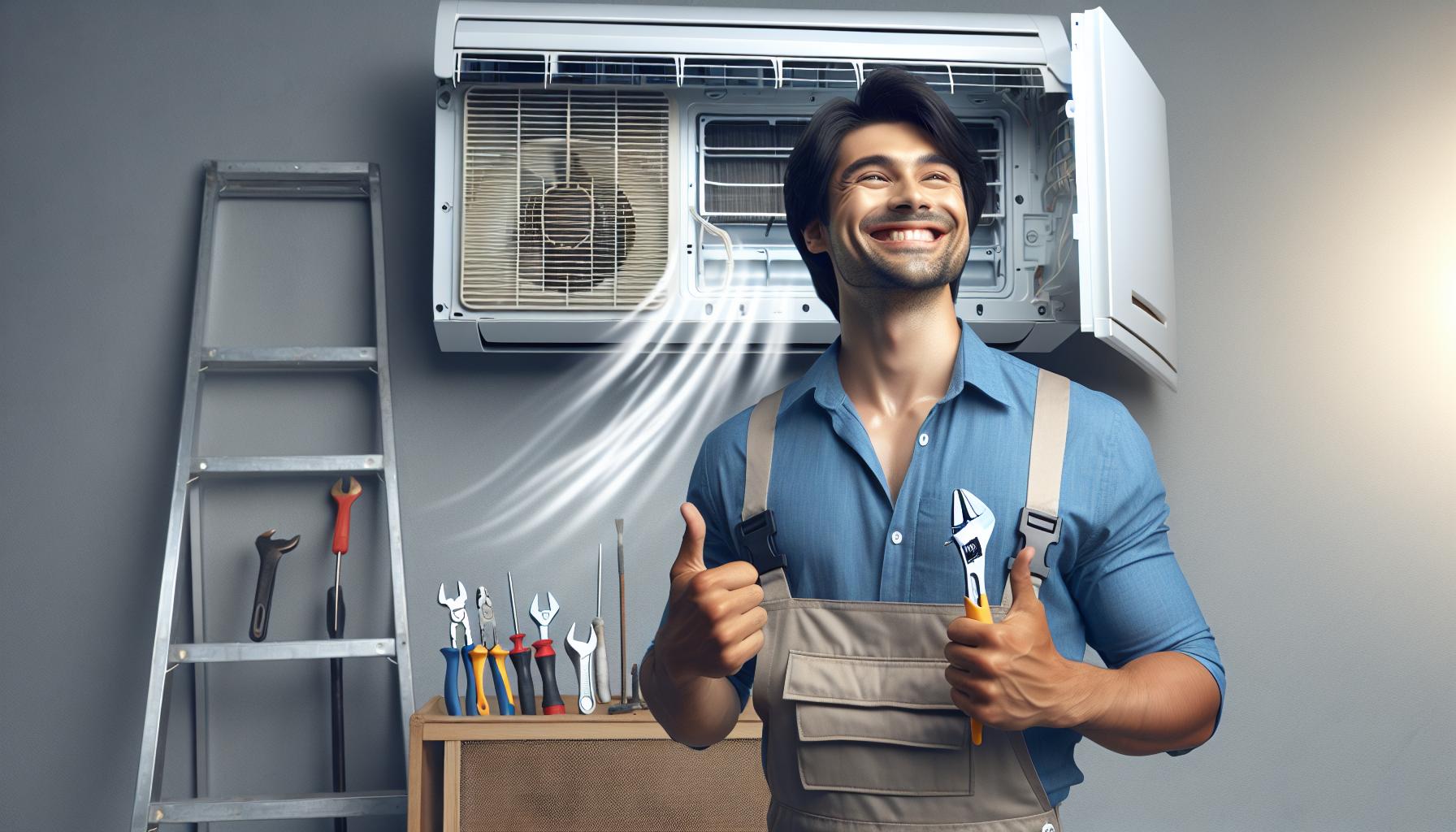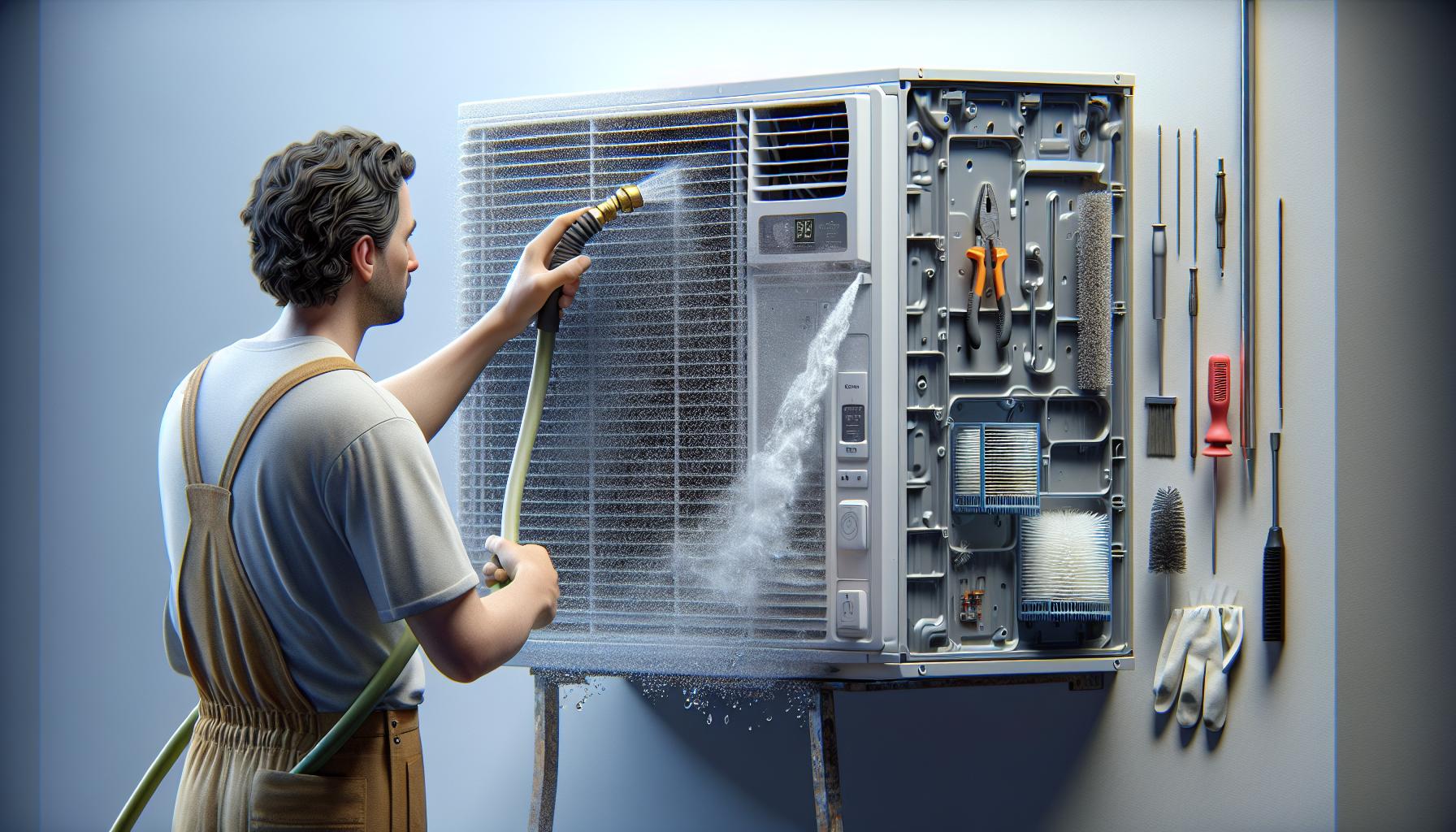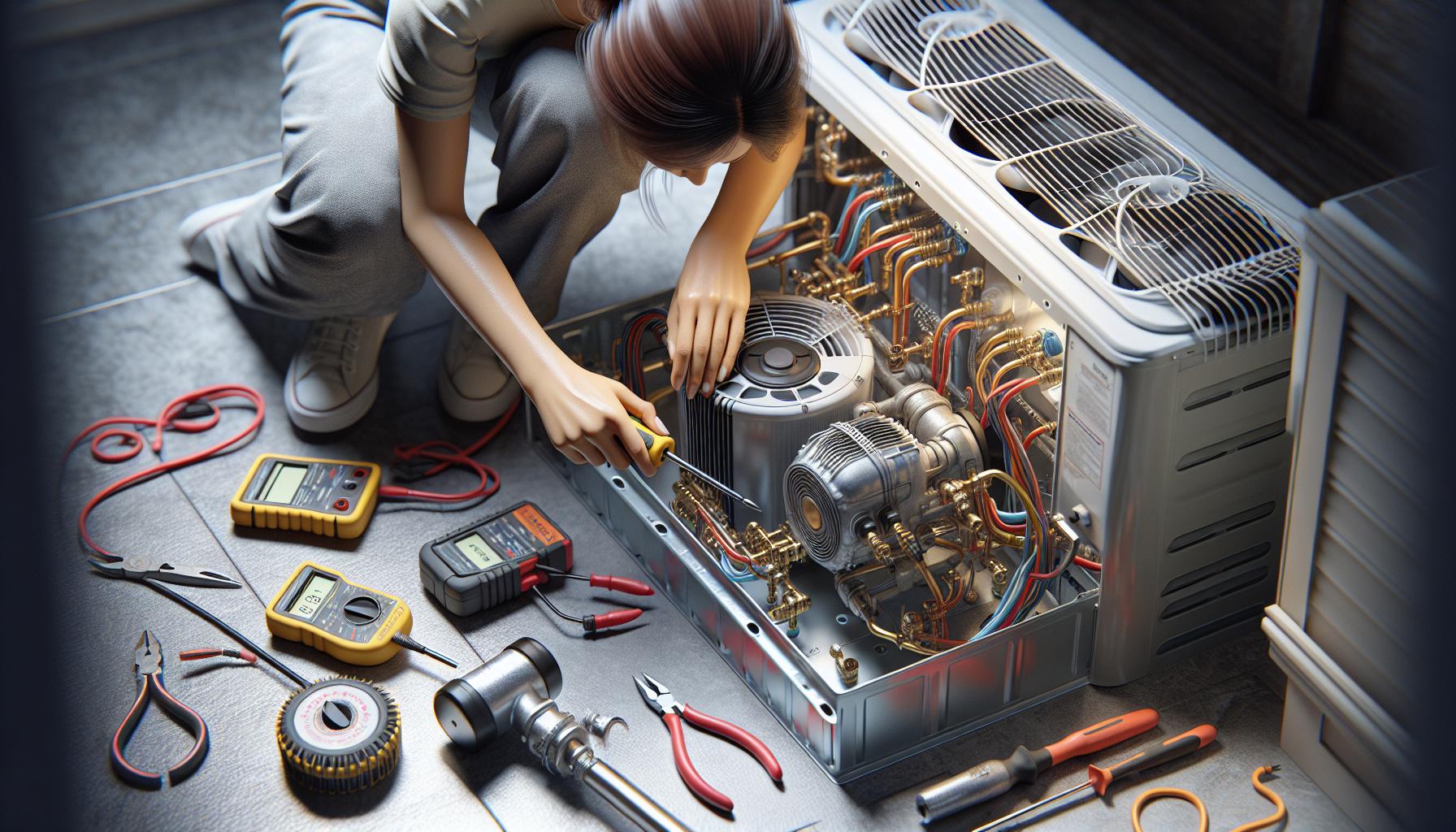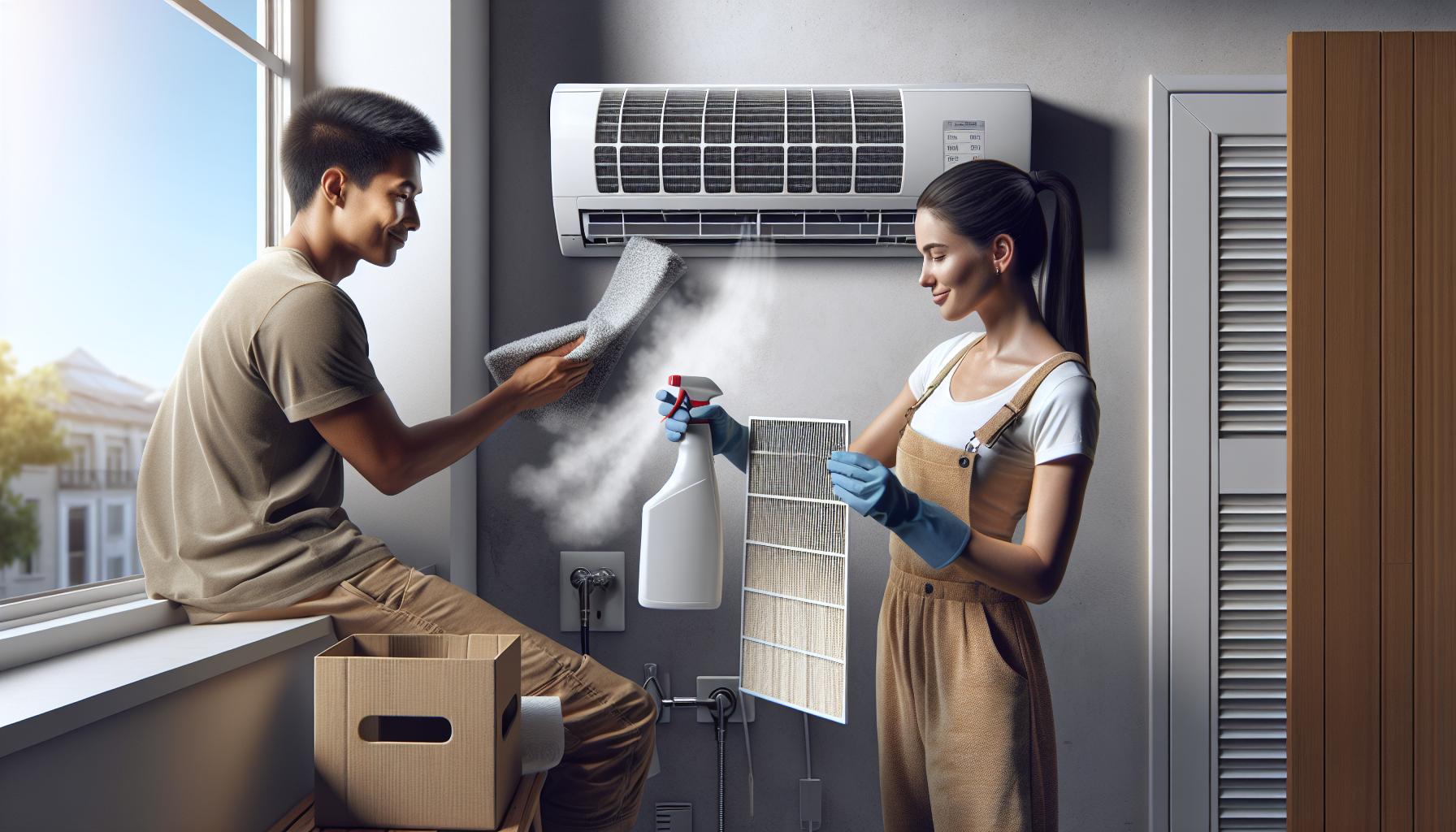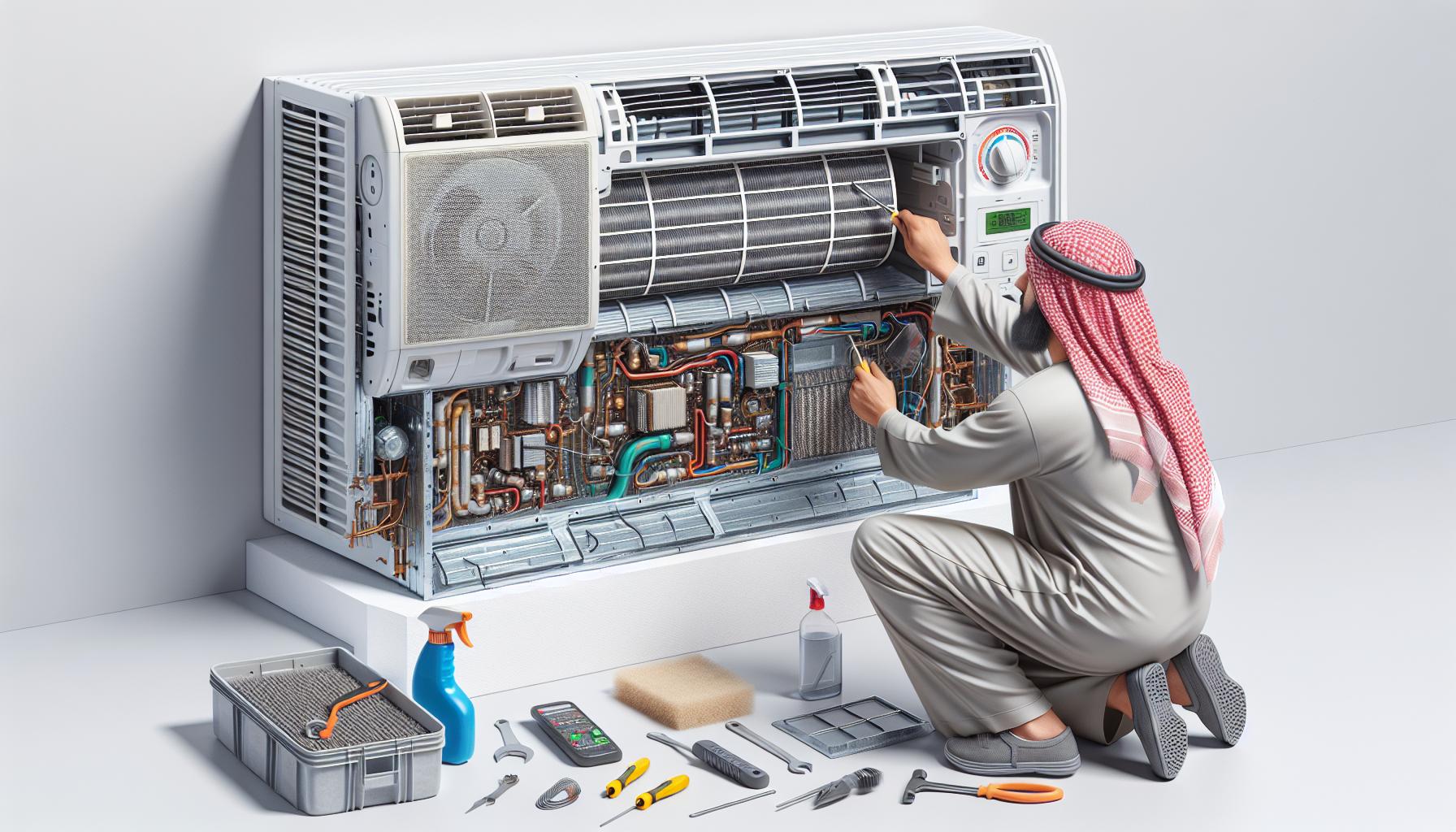You’ve set your thermostat for a chilly escape from the heat, but your air conditioner has other plans it’s running but not cooling. It’s a common frustration when the relief you expect is replaced by a lukewarm breeze. Don’t sweat it just yet; understanding why this happens is the first step to turning the tide on your temperamental AC.
From a knocked thermostat to a complex mechanical hiccup, there are several culprits behind your AC’s lacklustre performance. It’s crucial to pinpoint the issue quickly, as a timely fix can restore your comfort and prevent further damage. Let’s investigate into the common reasons why your air conditioner might be on strike and how to troubleshoot the problem.
Common causes of air conditioner not cooling
Lack of Power or Faulty Electrical Components
One of the foundational issues that leads to an AC not cooling is a lack of power or electrical failures. Ensure your system s power supply is uninterrupted. Inspect your circuit breaker and reset it if tripped. Faulty wires or loose connections can prevent power from reaching your AC unit. The AC Disconnect Switch or the contactor, vital for starting up the condenser unit, may also fail, requiring replacement by a certified technician.
Dirty or Clogged Air Filters
Air filters play a crucial role in maintaining airflow. When clogged with dirt and debris, they can restrict air movement, leading to poor cooling performance. It’s recommended to inspect and, if necessary, replace your air filters monthly. A clean filter ensures optimal airflow and efficient system operation. Remember, a clogged filter doesn t just reduce efficiency it can lead to a complete system shutdown.
Low Refrigerant Levels
Your AC system s refrigerant is essential for absorbing and releasing heat. Low refrigerant levels, potentially due to leaks, will cripple your AC’s cooling ability. The signature sign of a refrigerant issue is an AC blowing warm air or ice formation on the evaporator coils. Only a licensed professional should handle refrigerant due to the strict regulations governing its use.
Issues with the Condenser Unit
The condenser unit, responsible for dissipating heat to the outside, can encounter a slew of problems. Dirty condenser coils, blocked by debris or outdoor elements, can t release heat efficiently. This hinders your AC s ability to cool. Also, a damaged compressor, often referred to as the heart of the AC system, impedes cooling capabilities. A malfunctioning fan within the unit can also cause similar cooling issues.
Faulty Thermostat
Finally, a faulty thermostat could be misleading your AC system. If the thermostat isn t accurately gauging the room temperature, it won t trigger the AC to cool as needed. Ensure that the thermostat is set correctly; it should be on ‘Auto’, not ‘Fan’, to enable cooling cycles. If simple adjustments don’t work, your thermostat might require recalibration, or in some cases, a complete replacement.
Steps to troubleshoot and fix an air conditioner that is not cooling

Facing an air conditioner that’s running but not cooling can be a major inconvenience. This section will guide you through some practical steps to troubleshoot your AC’s issues and how to address them effectively.
Check Power Supply and Electrical Components
Firstly, ensure your air conditioner has a consistent power supply. Power issues often disrupt the operation of your air conditioning system. You’ll want to:
- Verify if a power outage has occurred and if the circuit breaker for the AC unit has tripped.
- Inspect the electrical connections to the AC unit; look for any signs of loose or burnt wires which can cause inefficient operation.
- Check the disconnect box for any damage. Faulty wires or connections could be the culprits here. If the electrical components show signs of damage or wear, it s time to reach out to a licensed HVAC professional to safely manage these electrical issues.
Clean or Replace Air Filters
Next, examine your AC s air filter. A Clogged Air Filter restricts airflow, which can significantly reduce your unit’s cooling efficiency. To ensure effective performance:
- Clean reusable filters with mild soap and water and allow them to dry thoroughly before reinserting.
- Replace disposable filters as recommended, generally every 30-90 days depending on usage.
Maintaining clean air filters not only improves your AC’s performance but also enhances indoor air quality.
Add Refrigerant if Levels Are Low
Low Refrigerant Levels can severely impact your air conditioner’s ability to cool your home. Refrigerant is crucial for absorbing heat from the air; without it, your unit will fail to cool adequately. Remember:
- The presence of low refrigerant usually indicates a leak, as this substance does not deplete under normal conditions.
- Attempting to handle refrigerant without proper training and equipment can be dangerous.
- Only licensed technicians should address refrigerant issues to ensure safety and compliance with regulations.
Check and Clean Condenser Unit
Inspect the Condenser Unit, as a dirty or obstructed condenser can lead to poor cooling performance. For maintenance:
- Remove any debris, such as leaves, dirt, or pollen, that may have accumulated around the condenser unit.
- Clean the condenser coils since they play a significant role in expelling heat from your home. Conducting regular cleaning of the condenser unit will maintain its efficiency and prevent long-term damage.
Calibrate or Replace the Thermostat
Finally, assess your thermostat. An inaccurate thermostat can mislead your AC, causing it to run improperly or not cool at all. To tackle thermostat issues:
- Check the thermostat settings to ensure it’s set to “Cool” and the temperature setting is lower than the current room temperature.
- Recalibrate the thermostat if it’s not reading the correct temperatures.
If recalibration doesn’t resolve the issue, consider replacing the thermostat with a model that guarantees precise temperature control. A modern programmable thermostat can also improve the efficiency of your AC system.
By taking these steps, you can often solve the mystery behind your air conditioner’s lack of cooling. Remember, regular maintenance and prompt attention to potential issues are key to keeping your air conditioning unit in top working order.
When to seek professional help

Problems with your air conditioner can range from simple fixes to complex issues that require expert intervention. If you’ve tried the basic troubleshooting steps without success, it’s time to consider calling in the professionals. An AC system is complex and, at times, issues like refrigerant leaks can occur, leading to the air conditioner not cooling efficiently. These kinds of leaks pose health risks and environmental concerns, and they need to be handled with precision and care by trained technicians. Also, handling refrigerants without proper certification is illegal in many places, reaffirming the need for professional service.
Also, if you’ve encountered an unexplained blockage or damage to your air conditioner’s internal parts like the evaporator coil, this is beyond the scope of DIY. Professional servicing is essential to resolve issues such as:
- Dirty coils that lead to inefficient heat absorption
- Coils freezing up due to low refrigerant levels
- Damage from pests in the ductwork
Experts have the right tools and expertise to clean coils without causing damage, detect and repair refrigerant leaks, and repair ductwork that’s been compromised by pests. Remember, prompt action can prevent further damage and costly repairs down the line.
Regular maintenance can’t be overstated; a professional can help maintain your system and identify issues before they worsen. If you’re experiencing persistent problems, a licensed professional can recalibrate your thermostat, suggest the installation of a UV light to combat mold and mildew, and ensure your air conditioning system operates at peak efficiency.
Replacing air filters regularly also contributes to the overall performance of your AC. But, if issues persist after you’ve cleaned or replaced your filters, this could indicate deeper problems within your air conditioning system that require a competent technician. In cases where you’ve done all you can and the air conditioner still isn’t cooling, don’t hesitate to contact a specialist. An expert can diagnose and rectify your cooling issues, allowing you to enjoy a comfortably cool space once again.
Conclusion
You’ve now got the know-how to tackle the common culprits behind your air conditioner’s lack of cool air. Remember, regular checks on your power supply, air filters, and condenser unit can save you from sweltering heat. But when the problem’s beyond a simple fix, don’t hesitate to call in the pros. They’re equipped to handle the trickier issues and ensure your system runs smoothly. Stay cool and remember, timely maintenance is key to keeping your air conditioner at peak performance.
Related Posts:
- Upgrade Home Living with ComfortPlan: Smart Savings…
- Fixing an RV Water Heater Switch: Troubleshooting Tips
- Optimise Your Gas Fireplace: Wall Mounted Thermostat Guide
- Pentair MasterTemp 400: Fix a Flashing Heating Light…
- Troubleshooting Tips: Why Your Amana Air Conditioner…
- Pentair MasterTemp 400: Fixing the Service Heater…
